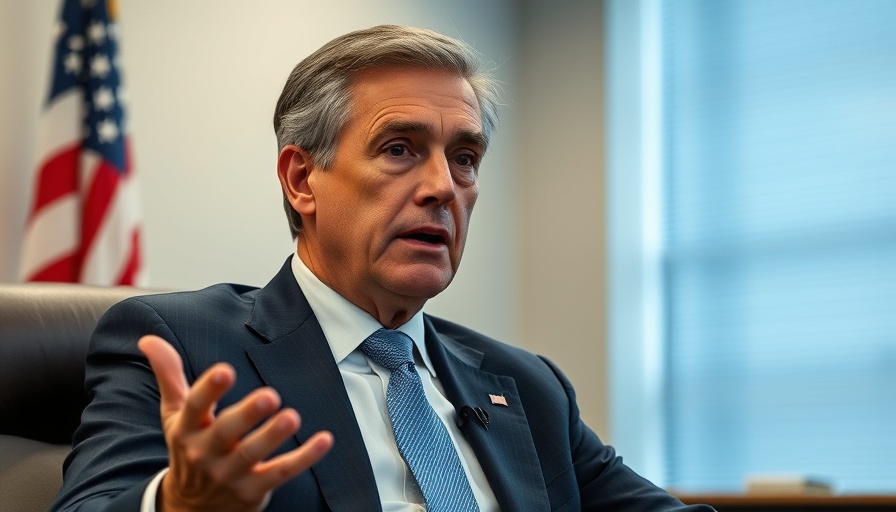
Introduction: Understanding Nevada's Crime Bill
Governor Joe Lombardo's recent proposal, the "Safe Streets and Neighborhoods Act," seeks to address various issues surrounding public safety in Nevada, particularly as it pertains to crime rates. With a significant focus on repeat offenders and retail theft, this bill proposes modifications to existing laws that may alter the landscape of law enforcement in the state. While its intended effects aim to bolster public safety, some worry about the resource implications and the potential ramifications on judicial processes.
The Continued Challenge of Repeat Offenders
One of the critical components of the proposed legislation is its approach to repeat offenders. Lombardo's bill proposes redefining a "habitual criminal" as having two felony convictions instead of five. This change implies that individuals with a minor criminal history could face harsh sentences ranging from five to twenty years in prison. The intention is clear: deterring crime through heightened consequences. "When someone demonstrates a disregard for the law while on bail or pretrial release, it's an indicator of their potential danger to the community," remarks Washoe County District Attorney Christopher Hicks.
Shifting Focus: New Standards for DUIs
Further amplifying the legislation's scope are increased penalties for Driving Under the Influence (DUI), targeting both first-time and repeat offenders. The state plans to reinforce strict measures for those who engage in further wrongdoing after being caught in a DUI diversion program. Lombardo has emphasized that repeat DUI offenses may now carry consequences typically associated with second-degree murder, illustrating a significant policy shift aimed at protecting public safety on Nevada's roads.
Reforming Retail Theft Laws
Arguably, one of the bill's more contentious aspects is its intended overhaul of retail theft laws. The threshold for felony retail theft is set to drop from $1,200 to $750. For many in the business community, this adjustment is long overdue. Retail theft has escalated as a pressing concern for storeowners, and aligning Nevada's laws with those of neighboring states could provide them a greater sense of security. Enhanced sentencing guidelines for retail theft under this legislation aim to ensure that habitual offenders with multiple theft convictions face severe penalties.
Examining Potential Fiscal Impacts
Despite its ambitious objectives, the Safe Streets and Neighborhoods Act poses challenges, particularly around fiscal responsibility. According to projections from the Department of Corrections, the act is estimated to incur an additional $42.2 million in costs associated with increased incarceration rates and a growing offender population. Critics are already raising concerns that such a strain could lead to budgetary issues, creating a ripple effect on other public safety initiatives if not carefully managed.
Rethinking the Approach to Justice
The conversation surrounding Lombardo's bill invites a broader examination of criminal justice reform and the balance between punishment and rehabilitation. Law enforcement officials argue that higher penalties could serve as a deterrent, compelling potential offenders to reconsider their actions. However, others caution against the risk of overcrowding prisons without seeing the desired reduction in crime rates. The legislation's implications will require careful analysis over time to gauge effectiveness and ensure that public safety does not come at the cost of fairness in the judicial system.
Your Role in Public Safety Discussion
As policymakers, law enforcement officials, and community members consider the far-reaching implications of this crime bill, staying informed and involved is essential. Conversations about public safety are ever-evolving; understanding proposed measures and their effects empowers citizens and advocates alike to contribute effectively to community resilience.
Conclusion: The Path Forward
As Gov. Lombardo continues to work toward implementing the Safe Streets and Neighborhoods Act, the road ahead demands collaboration, accountability, and staying attuned to the needs of the community. Whether through improved legislation or innovative approaches to policing, each stakeholder's participation is crucial in fostering a secure environment for Nevadans. Thus, staying active in ongoing discussions regarding this bill can help shape a future where public safety is prioritized without compromising justice.
 Add Row
Add Row  Add
Add 

 Add Element
Add Element  Add Row
Add Row 




Write A Comment